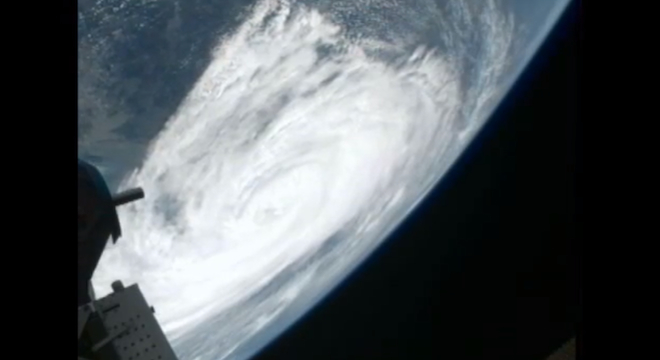As residents on the Gulf Coast brace for the onset of Hurricane Isaac, NASA has posted a new video of the hurricane captured today from an external camera aboard the International Space Station.
The video shows the hurricane, then at a category 1 strength, recently downgraded to a tropical storm, slowly rotating into view as the station orbits the Earth at a speed of over 17,000 miles per hour some 250 miles overhead.
“We did this because it helps give the public a better sense of what the storm looks like,” NASA Johnson Space Center spokesman Doug Bristol told TPM in a phone call. “The space station is closer to the Earth than most weather satellites and might be able to give scientists a bit more detailed view.”
The new space station video supplements the already extensive views of the storm captured by NASA and National Oceanic and Atmospheric Administration (NOAA) weather satellites.
Around minute 1:50, Isaac’s eye comes clearly into view.
“This is a storm with a good-sized eyeball,” Bristol noted. “We can also see some good cyclone detail.”
NASA recorded the video and streamed it live on NASA TV early Wednesday afternoon, right as the station’s orbit placed it just over the dangerous storm.
The camera, located on the station’s truss, is one of four outside the station capable of recording and transmitting live video.
In this instance, it was controlled remotely by operators on the ground at NASA’s Johnson Space Center in Houston, Texas, Bristol told TPM.
“What we do is coordinate with folks on the ground about the [storm’s] trajectory and they can move it into the best position,” Bristol said. “The crew could control the camera if they needed to, but in this case, they didn’t.”
But because both the space station and the storm are moving, NASA isn’t sure how many more times it will be able to capture such accurate video of it. The space station itself orbits the Earth just over 15 times a day, but it may only pass over the hurricane in a good enough position to be able to capture video “once or twice,” during that time, said Bristol.






